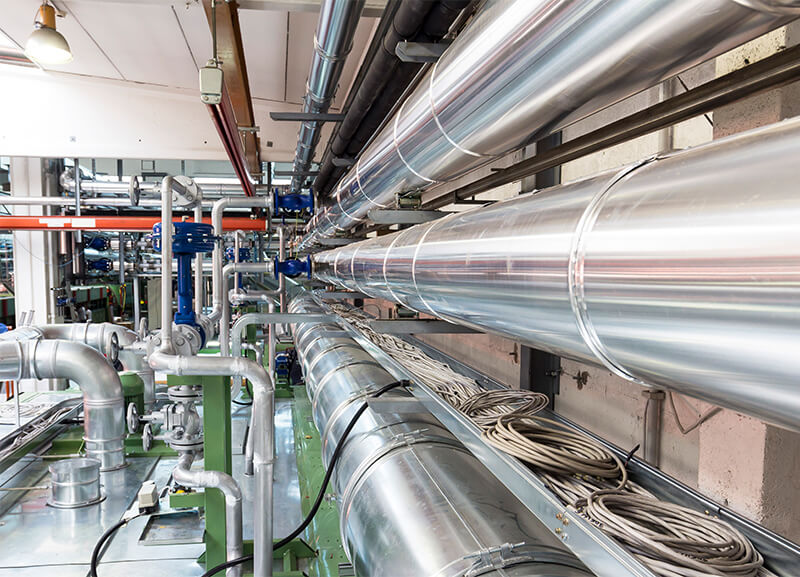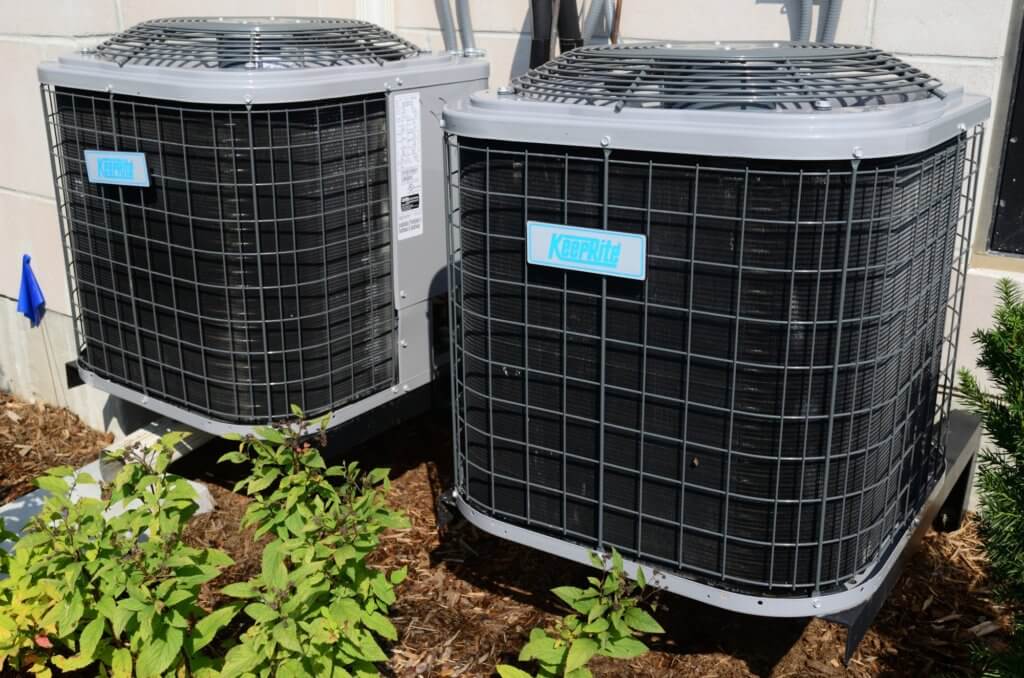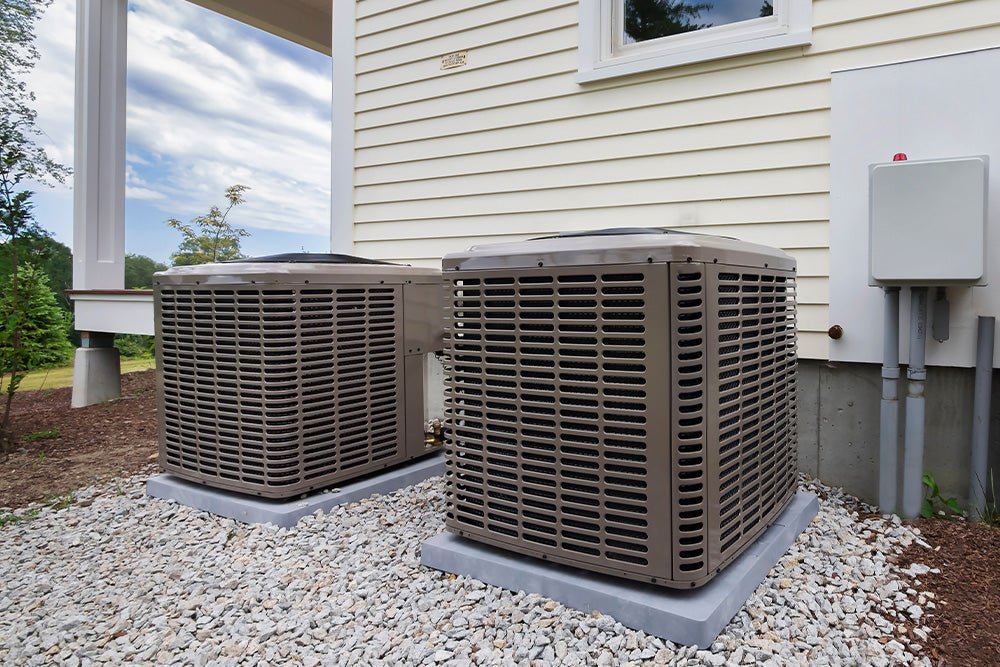Checking Out the Essential Components of a Reliable Cooling And Heating System
A reliable cooling and heating system is improved numerous essential elements that operate in consistency. Each component, from the thermostat to the ductwork, plays an essential function in keeping comfort and energy effectiveness. Understanding these components is crucial for enhancing efficiency and enhancing indoor air quality. As one takes a look at these parts, the complex relationships in between them disclose insights right into improving total system performance. What specific factors contribute most to this performance?
The Role of the Thermostat in Heating And Cooling Effectiveness

Although commonly overlooked, the thermostat plays a vital function in the efficiency of cooling and heating systems. HVAC experts. This small device functions as the primary control facility, regulating temperature level settings and ensuring ideal convenience within a space. By precisely picking up the ambient temperature, the thermostat connects with the ventilation, home heating, and air conditioning units to keep the desired environment
An efficient thermostat decreases power consumption by turning on the HVAC system just when required, therefore preventing excessive heating or cooling. Modern programmable and wise thermostats enhance this performance additionally by enabling customers to establish schedules and from another location adjust settings, adapting to day-to-day regimens.
In addition, the positioning of the thermostat is important; incorrect place can bring about incorrect temperature analyses, resulting in ineffective operation. Generally, a well-functioning thermostat not just improves comfort but also contributes significantly to power financial savings and the durability of the heating and cooling system.
Comprehending the Relevance of Air Filters
Air filters offer a crucial function in a/c systems by ensuring that the air circulating within an area stays healthy and clean. These filters catch dust, allergens, and various other contaminants, avoiding them from being recirculated throughout the setting. By capturing these bits, air filters add to boosted indoor air top quality, which can greatly profit passengers' wellness, specifically those with allergies or breathing conditions.
In addition, keeping clean air filters enhances the effectiveness of heating and cooling systems. Stopped up filters can restrict air flow, triggering the system to work tougher to maintain wanted temperature levels, bring about increased energy intake and higher energy costs. Routinely changing or cleaning up filters is a vital upkeep action that can prolong the life-span of heating and cooling devices. Inevitably, comprehending the relevance of air filters enables house owners and building supervisors to take positive procedures to assure a well-functioning, reliable a/c system that advertises a secure and comfy interior setting.

The Capability of the Furnace and Warmth Pump
Heaters and heatpump are essential parts of a/c systems, responsible for supplying warmth during chillier months. Heating systems run by home heating air via combustion or electrical resistance, after that dispersing it throughout the home via air ducts. They usually supply quick heating and can be fueled by natural gas, power, or oil, relying on the system kind.
Conversely, heatpump transfer heat rather than generate it. They remove warm from the outside air or ground, also in reduced temperatures, and transfer it inside your home. HVAC experts. This dual performance allows heatpump to also give cooling in warmer months, making them flexible choices for year-round climate control
Both systems need proper upkeep to ensure performance and durability. While heaters master severe cold, warm pumps can be advantageous in moderate climates. Comprehending their distinctive functionalities aids house owners in picking one of the most ideal choice for their heating requires.
Exploring the Cooling Device
The cooling unit is an essential element of HVAC systems, readily available in numerous kinds to suit different requirements. Comprehending the performance rankings of these systems is crucial for making informed selections concerning power intake and price. This section will certainly explore the varied sorts of ac system and clear up how effectiveness scores effect performance.
Sorts Of Air Conditioners
While various variables influence the choice of a/c systems, recognizing the various kinds readily available is vital for homeowners and structure supervisors alike. Central air conditioners are made to cool down entire homes or structures, making use of a network of air ducts for air flow. Home window devices offer an even more localized option, ideal for small spaces or single areas. Portable air conditioning unit supply adaptability, allowing users to move the unit as required. Ductless mini-split systems are one more alternative, combining the efficiency of main systems with the ease of zoning, as they call for no ductwork. Finally, geothermal systems harness the planet's temperature level for energy-efficient air conditioning. Each type includes unique advantages, making educated choices crucial for reliable climate control.

Effectiveness Rankings Clarified
Recognizing efficiency ratings is crucial for choosing the best air conditioning system, as these metrics supply understanding into the system's efficiency and power intake. The most typical ranking for air conditioning system is the Seasonal Energy Efficiency Proportion (SEER), which measures the cooling result throughout a normal cooling season separated by the total electrical energy input. A greater SEER shows much better performance. Furthermore, the Energy Efficiency Proportion (EER) is used for gauging effectiveness under specific conditions. One more vital metric is the Energy Star qualification, which indicates that a device satisfies rigorous power performance guidelines. By assessing these rankings, customers can make educated selections that not just enhance convenience but likewise minimize power costs and environmental effect.
The Importance of Ductwork and Air movement
Efficient ductwork design and airflow administration play essential roles in the general efficiency and performance of a/c systems. Correct ductwork assurances that conditioned air is dispersed evenly throughout a room, minimizing temperature level fluctuations and boosting convenience. Well-designed air ducts minimize resistance to air flow, reducing the workload on cooling and heating devices and eventually reducing energy consumption.
Air flow monitoring entails purposefully positioning vents and signs up to improve the circulation of air. This stops usual more info problems such as chilly or warm areas, which can take place when air flow is obstructed or inadequately balanced. In addition, the ideal duct materials and insulation can better improve performance by minimizing warm loss or gain throughout air transit.
An efficient ductwork system not only adds to energy cost savings yet can likewise lengthen the life expectancy of HVAC devices by reducing unneeded strain (HVAC experts). As a result, understanding the significance of ductwork and airflow is important for achieving peak a/c system efficiency
Routine Maintenance Practices to Improve Efficiency
Routine maintenance practices are important for ensuring peak efficiency of a/c systems. These techniques consist of regular examinations, cleaning, and essential repair work to keep the system running efficiently. Frequently changing air filters is vital, as blocked filters can obstruct airflow and lower efficiency. Furthermore, professionals need to examine and clean evaporator and condenser coils to avoid getting too hot and energy wastefulness.
Annual professional assessments are also advised, as trained specialists can identify possible problems prior to they intensify. Oiling relocating parts lessens deterioration, adding to a longer life-span for the system. Moreover, making sure that the thermostat operates appropriately help in preserving suitable temperature level control.

Often Asked Questions
How Commonly Should I Replace My Thermostat?
Thermostats ought to commonly be replaced every 5 to 10 years, depending on usage and innovation advancements. Normal checks are recommended to guarantee peak efficiency, especially if experiencing irregular temperature level control or enhanced power costs.
What Size Air Filter Is Best for My Heating And Cooling System?
The very best size air filter for a HVAC system varies by device style. Normally, it's crucial to get in touch with the proprietor's guidebook or examine the existing filter dimensions to assure peak efficiency and air quality.
Can I Mount a Heatpump Myself?
Setting up a warm pump individually is possible for skilled people, but it calls for understanding of regional codes and electrical systems. Working with an expert is suggested to assure proper installment and perfect system performance.
Just how Do I Know if My Ductwork Is Efficient?
To figure out ductwork performance, one need to check for leaks, procedure airflow at vents, evaluate insulation top quality, and evaluate temperature level distinctions in between supply and return ducts. Expert evaluations can give extensive insights right into total efficiency.
What Are Indicators My Heating And Cooling Requirements Immediate Upkeep?
Indications that a HVAC system requires prompt maintenance include unusual sounds, irregular temperatures, raised energy expenses, unpleasant smells, and frequent biking. Dealing with these problems promptly can protect against additional damages and guarantee peak system performance.
Air filters offer an important function in Heating and cooling systems by assuring that the air circulating within an area stays healthy and tidy. In addition, preserving clean air filters enhances the effectiveness of A/c systems. Ductless mini-split systems are an additional option, integrating the effectiveness of main systems with the convenience of zoning, as they need no ductwork. Understanding effectiveness rankings is necessary for choosing the ideal air conditioning unit, as these metrics offer insight right into the system's performance and power usage. The finest size air filter for a Cooling and heating system varies by unit layout.